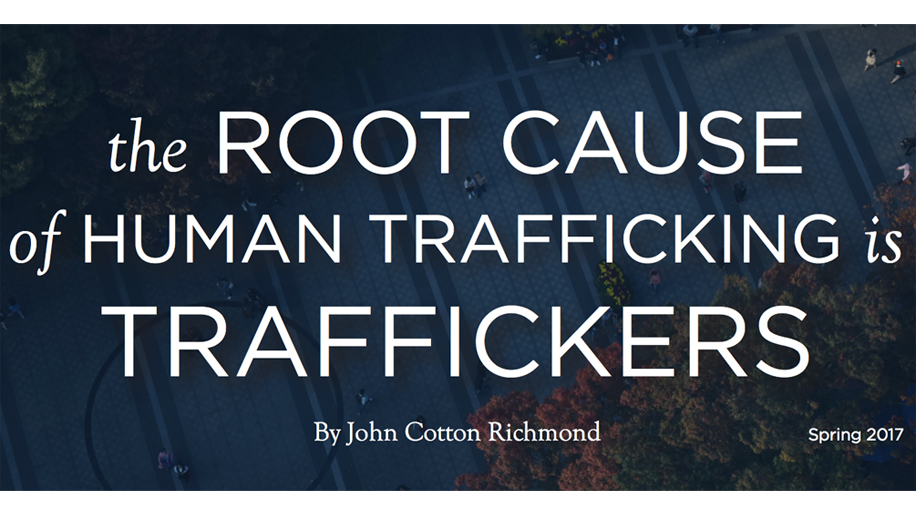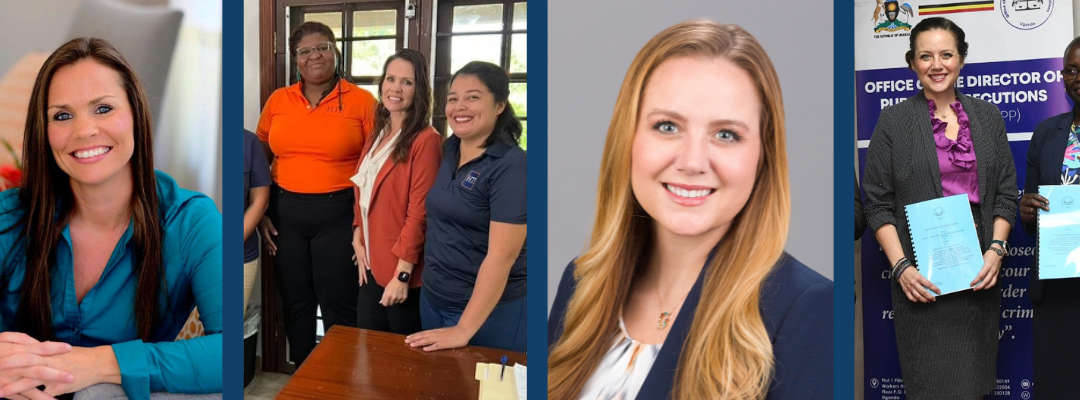“The Root Cause of Human Trafficking is Traffickers.” Some might wonder, “How can someone make this statement? After all, aren’t there many interconnected causes of human trafficking?” People might argue that poverty, lack of education, immigration policy, environmental conditions, fractured families, and a lack of good job opportunities are the real causes of human trafficking.
There is no doubt that these conditions create a toxic cocktail of vulnerability that makes it easier for traffickers to exploit their victims. Thoughtful efforts to reduce these vulnerabilities and address the challenges that generate them are worthy of our attention and resources, but they are not the core difficulty in combating human trafficking. Towering above all these significant challenges in human trafficking is the trafficker’s wilful decision to profit by compelling people to work or prostitute.
Consider this: when we seek to aid people dealing with prolonged drought, we are working against the natural elements. Water does not wilfully refuse to fall from the sky or try to prevent people of good will from helping by concealing the effects of thirst or crop failure. People can affect or exacerbate environmental problems, but the drought itself was not caused by human decision.
When we seek to help the sick, we are working against disease. Viruses and bacteria do not plot and scheme about people they might target. They do not engage in fraud or set traps to render certain people sick. The illness is not choosing to harm people for its own financial benefit or wilfully obstruct medical professionals from providing care.
But when we seek justice in human trafficking cases, we work against a human adversary. There is a trafficker scheming to exploit the vulnerable and conceal the crime. Perpetrators deliberately work against the justice we seek because they profit from the unjust status quo.
This fundamental truth about the intentionality of human trafficking generates hope. Stopping poverty may appear overwhelming and ending a drought may be beyond human control, but stopping an individual trafficker is doable.
Effective criminal justice systems know how to stop traffickers. They have done it before and they can do it again. But police, prosecutors, and judges of good will cannot send traffickers to jail if they are never equipped with the skills to do so. Ineffective justice systems must be transformed through proven strategies so that they can join the fight.
In this sense, we are not forced merely to endure the consequences of human trafficking. Human trafficking is not a naturally occurring phenomenon. It is a choice. After an earthquake, people of good will race in to mitigate the effects of the disaster, but they cannot stop the earthquake itself. But we are not limited to merely bearing the dehumanizing and tragic effects of trafficking. We can stop trafficking by stopping traffickers.
To be clear, stopping the trafficker does not resolve all the conditions that render individuals vulnerable. However, it frees victims and provides them with a fighting chance to improve their situation or benefit from important development programs. Any serious effort to combat human trafficking must include striking at its root cause: the traffickers.




